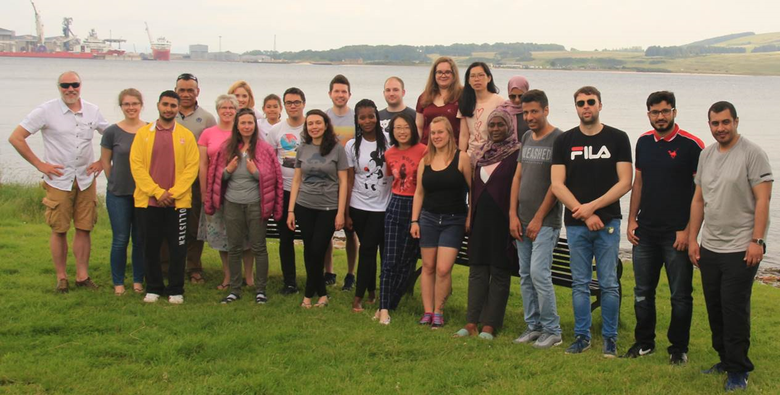Who are we and what we do?

TESLA was founded in 2000 by Prof. Joerg Feldmann. Dr Andrea Raab and Dr Eva Krupp followed shortly afterwards. We realised the first fully online coupling of HPLC simultaneously to ICP-MS and ESI-MS in 2002 and did the first bioimaging using LA-ICP-MS in 2003 and the first dynamic bioimaging in 2014.
Today, we are a group of approximately 25 researchers and our analytical facilities include ICP-MS, ICP-MS/MS, ESI-qTOF-MS, ESI-Orbitrap, LA-ICP-MS, sp-ICP-MS, FFFF-UV-MALS-ICP-MS, HPLC-ICP-MS, GC-ICP-MS, GC-MS, GFAAS, MP-AES, HG-AFS, CV-AFS, microwave digestion systems, clean room conditions and access to microbiological labs and greenhouses.
We are collaborating with research groups within the UK (Belfast, Cambridge, Liverpool, LGC, etc.), Europe (e.g., Austria, Denmark, France, Germany, Iceland, Ireland, Spain, Sweden, etc.) and worldwide (e.g., Australia, Argentina, Bangladesh, Brazil, Canada, China, Chile, Japan, Nigeria, Malawi, Mexico, Pakistan, USA, etc.)

Work within the Trace Element Speciation Laboratory (TESLA) focuses on species of elements such as arsenic, mercury and selenium, which are key to a better understanding of biological and environmental processes, such as transport of elements from soil into plants (especially rice), or the species transformation in a food web. In particular we look at the biochemical processes involving those elements in pilot whales and in the seaweed-eating sheep. But we investigate also processes in industries such as the distribution of mercury or arsenic in petrochemical plants to avoid corrosion and catalytic poisoning.
We are a partner lab of Agilent Technology and are also supported by
We have received funding from
- EPSRC,
- BBSRC,
- Leverhulme Trust,
- NERC and MRC (GCRF),
- EU-funding, British Commonwealth,
- Formas (Swedish Research Council),
- CNPq (Brazilian Research Council),
- Qatar Research Council,
- Malaysian Research Council,
- Royal Thai Research Council,
- The Petroleum Technology Development Fund (PTDF), Nigeria
- Saudi Arabian Cultural Bureau
- UNEP and others.
